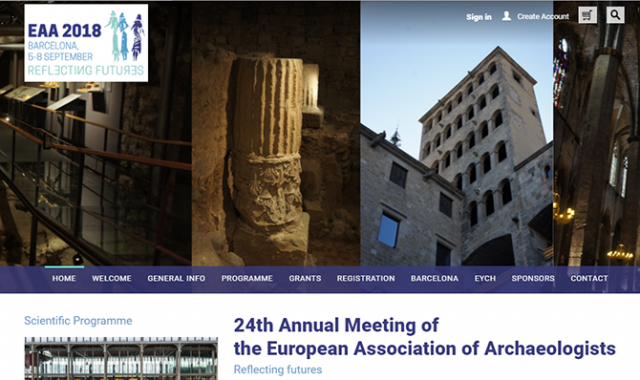Our participation in the annual meeting of the European Association of Archaeology, held in Barcelona (5-8th September 2018), includes the organisation of four sessions (“Human-Made Environments: The Development of Landscapes as Resource Assemblages”, “Human, Posthuman, Transhuman Digital Archaeologies”, “The Future of Rock Art – Documentation, Research, and Outreach”, and “ Moving Forward Through a New Gendered Funerary Archaeology: Current Research and New Perspectives on Differences and Inequality in Prehistoric Societies”) and the presentation of six papers: “ Social Complexity in Copper Age Iberia: Debating Antonio Gilman’s Ideas”, “Waterscapes in Antequera (Spain): Exploring the Role of Water Resources in Settlement Patterns, Monumentality and Connectivity”, “Burial Assemblages Vs Resource Assemblages: A Look into the Economic Background of Iberian Copper Age Megalithic Graves”, “Introduction: Human, Posthuman, Transhuman Digital Archaeologies”, “Rock Art Biographies: The Contribution of Digital Imaging Technologies”, “ The Impact of Neolithisation in the Diet of Iberian Prehistoric Populations through the Analysis of Δ13c and Δ15n Stable Isotopes”.



